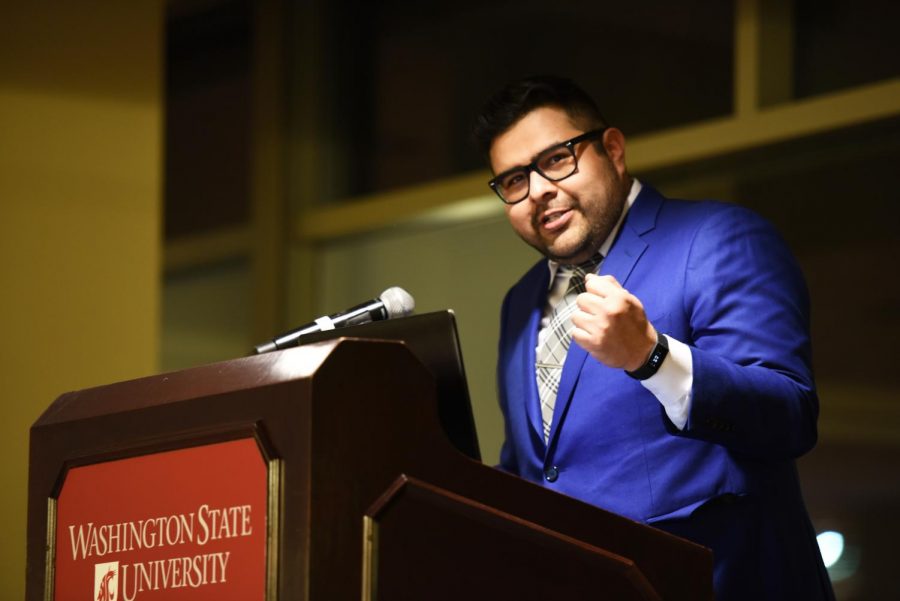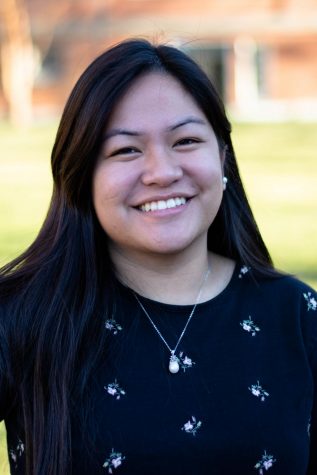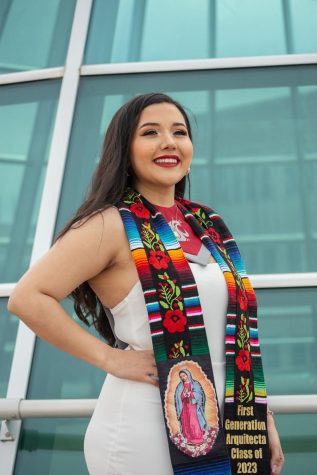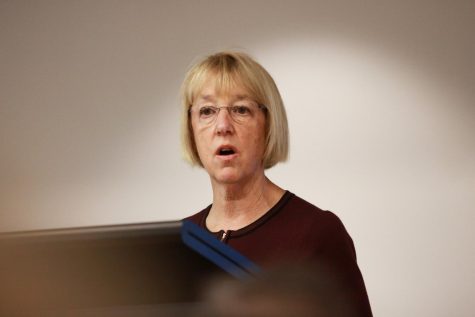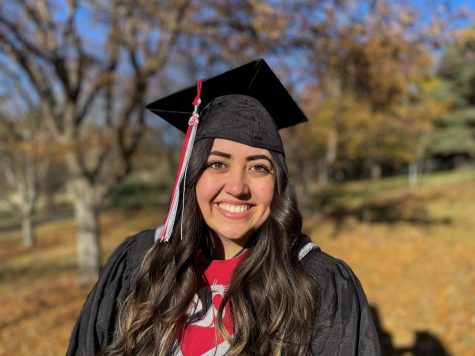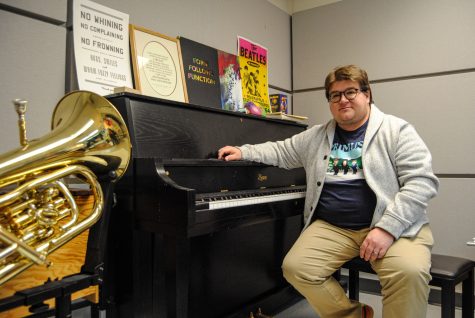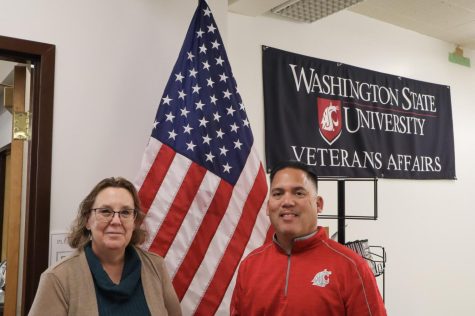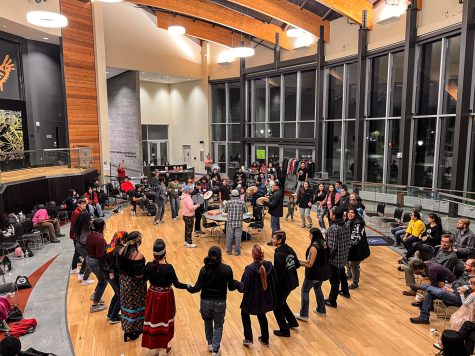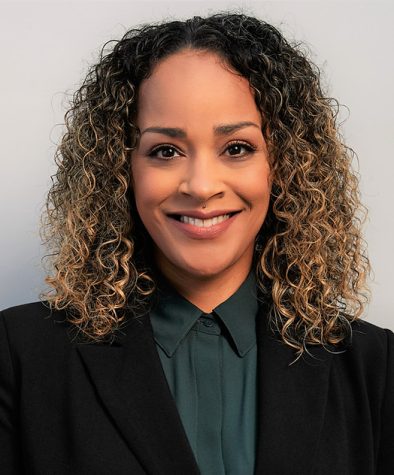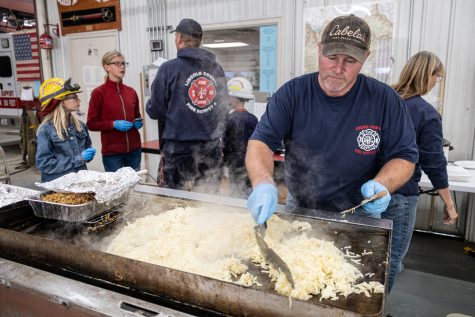Attorney shares fight to preserve DACA
Speaker says he looked for scholarships beyond his department for support
Luis Cortes Romero, an immigration attorney, speaks about the conditions of the detention center located in Tacoma, Wash. on Monday night in the CUB Junior Ballroom. He says looking for financial help from university private funds may help some students
March 4, 2020
Luis Cortes Romero sold chocolate in sixth grade in hopes of raising enough money for a school trip to Europe. Even with enough money he was told he could not go on the trip because he was not born in the U.S.
“I started to realize the consequences of being undocumented,” Cortes Romero, an immigration attorney at the Immigrant Advocacy & Litigation Center, said. “Growing up undocumented means just that — learning … all the things you can’t do.”
Cortes Romero discussed his efforts to preserve Deferred Action for Childhood Arrivals, also known as DACA, at the U.S. Supreme Court and his experiences as a DACA recipient himself Monday in the CUB Junior Ballroom.
DACA is a deal between the government and the recipient, Cortes Romero said. The recipient would provide all their personal information to the government and in return, the government would provide the recipient benefits such as work authorization. Recipients must renew their application every two years.
The Supreme Court will present its decision on the future of DACA sometime before June 2020, according to the National Immigration Law Center. Current DACA recipients can continue renewing their application, but new applications are still not accepted at this time.
When the Trump administration announced DACA was ending, Cortes Romero said a group of lawyers represented six DACA recipients who filed a lawsuit against the administration. Among the attorneys fighting for the case, he was one of them.
Cortes Romero said he hit his first crossroad in 2010 when he was a first-year student at the University of Idaho. He said he wanted to pursue a law degree, but because DACA was nonexistent at that time, he knew he would not be able to practice law.
“I remember being very torn and I called my mom and told her I’ll be quitting law school,” he said. “She gave me a very stern talking to and … she said, ‘We don’t know what’s going to happen, but what we do know is that they can’t unteach you what they will teach you there.’”
Cortes Romero said he was about to finish law school when DACA was established, which subsequently allowed him to practice law after he graduated.
“It truly felt like it fell from the sky,” he said.
DACA is more than just work authorization, Cortes Romero said. The program allows undocumented individuals to feel safe and secure in the U.S.
“I can’t describe what it feels like to not be afraid to be
exiled from the
only place you call home,” he said.
Cortes Romero said one of the questions he frequently gets is what will happen if DACA is no longer available in the future.
“The honest answer is that I don’t know,” he said. “What I do know is because of this activism and because of communities coming together, we now have a lot of very important people in our back.”
Although there are student support groups for undocumented students at WSU, an attendee asked how universities and colleges should help on their end.
Cortes Romero said looking for financial help from a school’s private funds, which are funds given from alumni, as well as private scholarships could help some students financially. When he was a student, he said he would look at scholarships in other departments at school to see if he fits the criteria.
Cortes Romero said if students are not authorized to work, they can find jobs at certain areas on campus that would pay for a portion of a student’s tuition instead of issuing a tangible paycheck.
Brenda Yepez, senior Spanish and humanities double major, said there was a conference she attended in the past that some undocumented students from other universities could not attend due to financial issues.
“Being supportive is something that I think everybody needs,” Yepez said.
Yepez said although WSU helps undocumented students, a lot more can be done.
“I think there should be more in terms of recognizing the work undocumented students are doing,” Yepez said, “especially when they’re being activists.”

